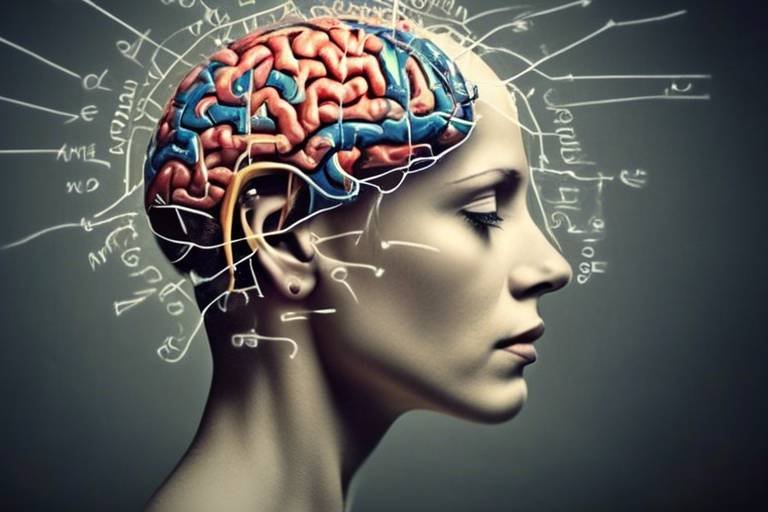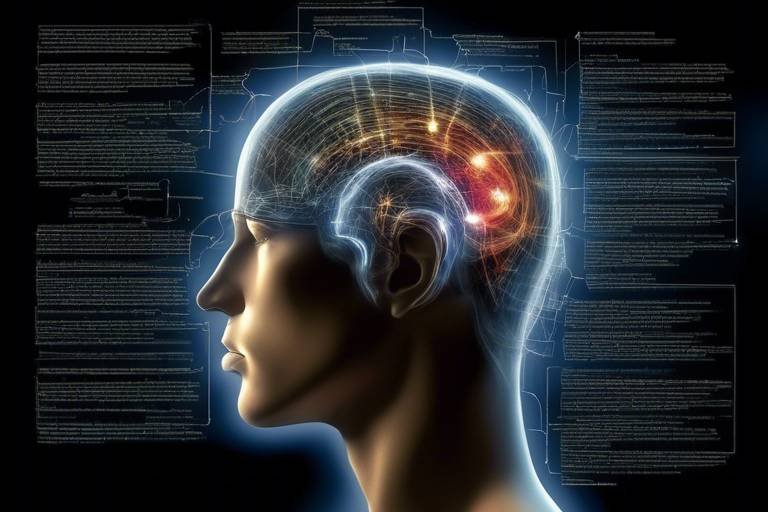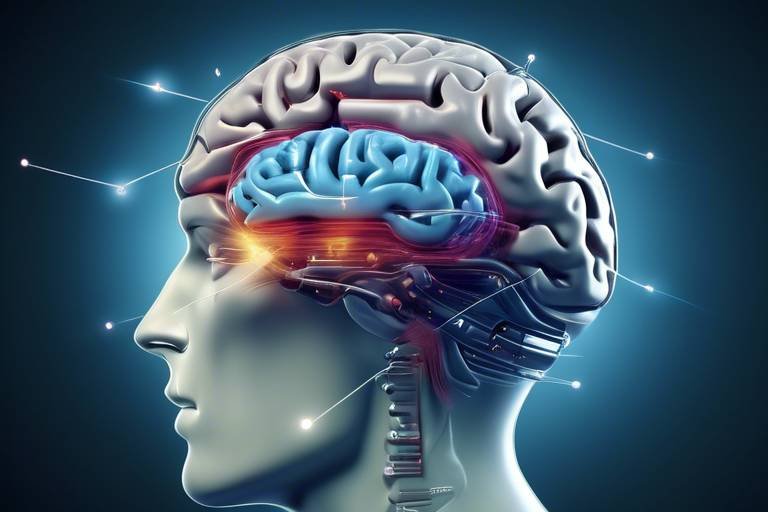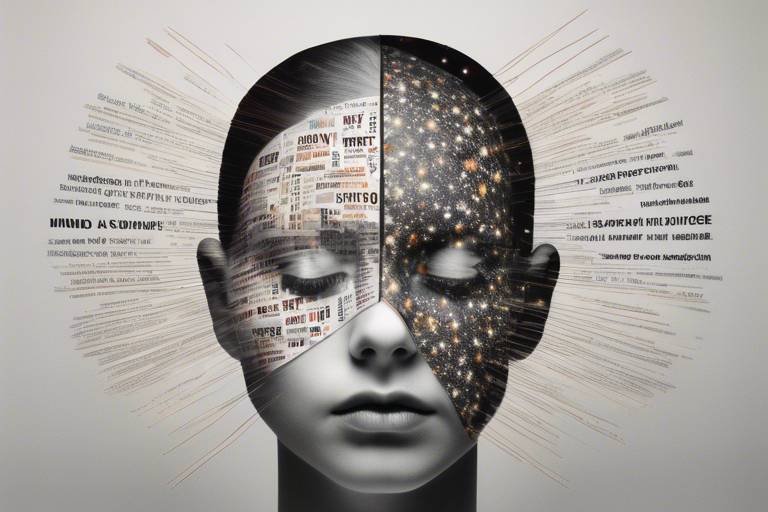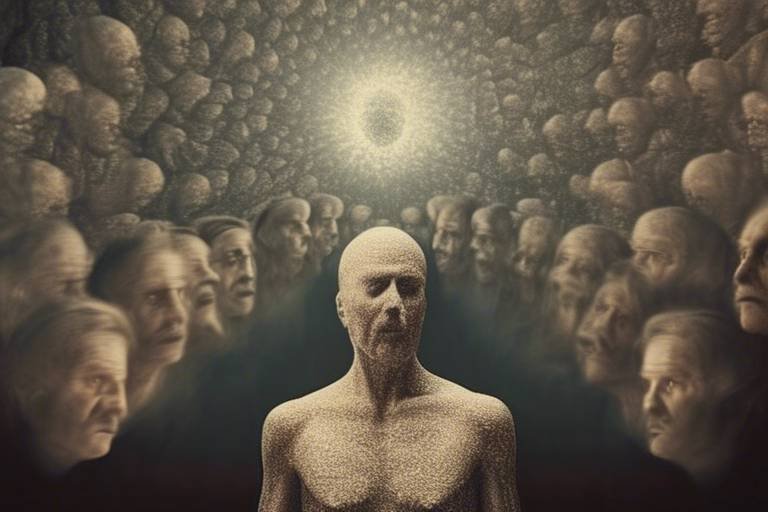How does the Mind Reflect Consciousness?
Have you ever pondered the intricate dance between your mind and consciousness? It’s a captivating relationship, one that shapes our reality in ways we often take for granted. Our minds are like a vast ocean, with consciousness being the surface waves that reflect the depths below. But what do we really know about how our mental processes influence our awareness and understanding of the world around us? This article dives deep into the theories, perspectives, and scientific insights that illuminate this complex interplay.
To grasp how the mind reflects consciousness, we first need to understand what consciousness is. It’s a term that often evokes philosophical debates and scientific inquiries. Some define consciousness as our awareness of ourselves and our environment, while others see it as a more profound state of being. Think of consciousness as the spotlight in a dark room; it illuminates certain aspects of our experience while leaving others in shadows. The characteristics of consciousness include intentionality, subjectivity, and unity, all of which contribute to our day-to-day experiences. But what happens when we challenge these definitions? Can consciousness exist without a mind? These questions have sparked numerous theories and discussions across various disciplines.
When we talk about consciousness, we cannot overlook the brain, often regarded as the physical foundation of our conscious experience. It’s the command center that processes information, generates thoughts, and ultimately shapes our awareness. The relationship between brain activity and consciousness is not just a matter of correlation; it’s a complex web of interactions. For instance, when you see a beautiful sunset, your brain is not merely receiving visual data; it’s interpreting, contextualizing, and evoking emotional responses. This brings us to the fascinating field of neuroscience, which employs various techniques to unravel the mysteries of consciousness.
Neuroscience utilizes a range of methods to study consciousness, helping us understand how our brains contribute to our conscious experiences. Techniques like neuroimaging (such as fMRI and PET scans) allow researchers to visualize brain activity in real-time. On the other hand, electrophysiology measures electrical activity in the brain, providing insights into how neurons communicate during conscious thought. Through these approaches, scientists are beginning to piece together the puzzle of how our mental processes reflect and shape our conscious awareness.
Specific areas of the brain are linked to different aspects of consciousness. For example, the prefrontal cortex plays a crucial role in self-awareness and decision-making. It’s like the conductor of an orchestra, harmonizing various mental processes to create a cohesive experience. Other regions, such as the thalamus and the parietal lobe, also contribute to our conscious awareness by processing sensory information and spatial orientation. Understanding these key brain regions helps us appreciate how our mental landscape is intricately connected to our conscious experience.
Let’s not forget about the role of neurotransmitters in modulating consciousness. Chemicals like dopamine and serotonin are not just buzzwords; they are vital players in the game of consciousness. For instance, dopamine is often associated with pleasure and reward, influencing our mood and motivation. On the other hand, serotonin impacts our feelings of well-being and happiness. When these neurotransmitters fluctuate, they can dramatically alter our conscious experience, reshaping how we perceive reality.
Philosophy offers a rich tapestry of viewpoints on consciousness, prompting us to question its very nature. Theories such as dualism suggest that the mind and body are distinct entities, while materialism posits that consciousness arises solely from physical processes. Then there’s panpsychism, which proposes that consciousness is a fundamental aspect of all matter. These philosophical debates not only enrich our understanding but also challenge us to consider the deeper implications of what it means to be conscious.
Exploring altered states of consciousness can reveal the complexity of our awareness. Experiences like dreams, meditation, and psychedelic journeys challenge our conventional understanding of reality. For instance, during dreams, our minds weave intricate narratives that can feel incredibly real, even though they occur in a state of sleep. Similarly, meditation practices can lead to profound shifts in perception, allowing individuals to experience a heightened sense of awareness and presence.
Meditation is more than just a trend; it has the power to transform consciousness. Through mindfulness practices, individuals often report enhanced emotional regulation and a deeper connection to the present moment. It’s as if meditation acts as a lens, sharpening our focus and allowing us to see the world with fresh eyes. This shift in perception can lead to greater self-awareness and an enriched understanding of our place in the universe.
Psychedelics, on the other hand, offer a different avenue for exploring consciousness. These substances can induce altered states that reveal new perspectives on reality. Users often describe experiences of interconnectedness, profound insights, and even spiritual awakenings. While the scientific community continues to study the implications of psychedelics, their ability to expand consciousness raises intriguing questions about the nature of reality itself.
As research in consciousness studies advances, we stand on the brink of exciting discoveries. Emerging technologies and interdisciplinary approaches are reshaping our understanding of the mind and its relationship to consciousness. The integration of artificial intelligence, neurotechnology, and psychology may soon provide us with tools to explore the depths of consciousness in ways we never thought possible. Who knows what revelations await us in the future?
- What is consciousness? Consciousness is the state of being aware of and able to think about one's own existence, thoughts, and surroundings.
- How does the brain influence consciousness? The brain processes sensory information and generates thoughts, which together shape our conscious experience.
- Can meditation change consciousness? Yes, meditation can enhance self-awareness and alter perceptions of reality.
- What role do neurotransmitters play in consciousness? Neurotransmitters like dopamine and serotonin significantly influence mood, perception, and overall conscious experience.

The Nature of Consciousness
Understanding consciousness is akin to trying to catch smoke with your bare hands—it’s elusive, complex, and often feels just out of reach. At its core, consciousness can be defined as our awareness of ourselves and our environment. But what does that really mean? It’s a question that has puzzled philosophers, scientists, and curious minds for centuries. To dive deeper, we can break down consciousness into several key characteristics:
- Subjectivity: Each person's conscious experience is unique. What you feel, see, and think is colored by your personal history, emotions, and perceptions.
- Intentionality: Consciousness is always about something. Whether it's a thought, a feeling, or an external object, our awareness is directed towards specific items or ideas.
- Unity: Despite the myriad of experiences we have, consciousness tends to feel like a single, cohesive experience. It’s as if all your thoughts, feelings, and sensations are woven into one fabric.
- Continuity: Consciousness flows seamlessly from one moment to the next, creating a sense of time and continuity in our experiences.
Philosophical debates on the nature of consciousness often revolve around two major schools of thought: dualism and materialism. Dualists argue that consciousness is separate from the physical brain, suggesting that our mind exists in a realm beyond mere neurons and synapses. In contrast, materialists contend that consciousness arises solely from physical processes in the brain, dismissing the idea of a non-physical mind. This debate raises intriguing questions: Is consciousness merely a byproduct of brain activity, or does it have an existence independent of our biology?
Another perspective worth mentioning is panpsychism, which posits that consciousness is a fundamental aspect of all matter. According to this view, everything—from a rock to a human being—has some form of consciousness. While this idea may sound far-fetched, it invites us to reconsider our relationship with the world around us, suggesting that even the simplest forms of life might possess a rudimentary awareness.
So, how does consciousness manifest in our everyday lives? Think of it as the lens through which we view reality. It shapes our perceptions, influences our decisions, and colors our interactions with others. For instance, when you’re engrossed in a book, your consciousness is focused solely on the text, allowing you to experience the story as if you were part of it. Conversely, when your mind drifts to worries about the future, your consciousness shifts, altering your emotional state and perception of the present moment.
This intricate relationship between consciousness and our mental processes is what makes it such a fascinating topic of study. The more we explore the nature of consciousness, the more we uncover about ourselves and what it means to be human. As we peel back the layers of this complex phenomenon, we find that consciousness is not just a passive state, but an active engagement with the world, constantly shaping and reshaping our understanding of reality.

The Role of the Brain
This article explores the intricate relationship between the mind and consciousness, delving into theories, perspectives, and scientific insights that illuminate how our mental processes shape our awareness and understanding of reality.
Understanding consciousness involves examining its definition, characteristics, and the philosophical debates surrounding it. This section will explore various perspectives on what consciousness truly is and how it manifests in human experience.
The brain is often considered the physical basis of consciousness, acting as the command center that orchestrates our thoughts, emotions, and perceptions. Imagine the brain as a complex orchestra, where each instrument plays a vital role in creating a harmonious symphony of consciousness. This section will discuss the neurological processes that contribute to conscious experience and how brain activity correlates with awareness and perception.
One of the most fascinating aspects of the brain is its ability to process information at lightning speed. When you see a beautiful sunset, for example, your brain is not just passively receiving visual data; it is actively interpreting colors, shapes, and even emotions associated with the experience. This intricate dance of neurons is what gives rise to our conscious awareness of the world around us.
To further understand the role of the brain, we can break down its functions into several key processes:
- Information Processing: The brain continuously receives sensory input and processes it to form perceptions and experiences.
- Memory Formation: Memories are created and stored, influencing our thoughts and behaviors.
- Emotional Regulation: The brain helps manage our emotions, which play a crucial role in shaping our conscious experiences.
Additionally, the brain's structure is crucial to its functioning. Different regions are specialized for various tasks, contributing to the overall tapestry of consciousness. For instance, the prefrontal cortex is essential for decision-making and self-awareness, while the hippocampus plays a vital role in memory formation. Understanding these regions helps us appreciate how consciousness is not a singular entity but a multifaceted experience shaped by numerous brain functions.
Neuroscience employs various methods to study consciousness, revealing the depths of our mental processes. Techniques like neuroimaging and electrophysiology allow researchers to visualize brain activity in real-time, uncovering the neural correlates of conscious thought and experience. These methods have opened up new avenues for understanding how our brains create the rich tapestry of consciousness we experience daily.
Specific areas of the brain are linked to different aspects of consciousness. The prefrontal cortex, for example, is associated with self-awareness and decision-making, serving as the brain's executive function. Other regions, such as the thalamus and parietal lobe, play significant roles in sensory perception and the integration of information, further illustrating how consciousness arises from a network of interconnected brain regions.
Neurotransmitters are the chemical messengers that facilitate communication between neurons, and they play a crucial role in modulating consciousness. Chemicals like dopamine and serotonin significantly influence mood, perception, and overall conscious experience. For instance, dopamine is often linked to feelings of pleasure and reward, while serotonin contributes to feelings of well-being and happiness. Understanding these neurotransmitters helps us appreciate the biochemical underpinnings of our conscious experiences.
Philosophy offers diverse viewpoints on consciousness, questioning its nature and existence. This section will examine theories such as dualism, materialism, and panpsychism, providing insight into the philosophical discourse surrounding consciousness.
Altered states reveal the complexity of consciousness. This section will explore phenomena like dreams, meditation, and psychedelic experiences, discussing how they challenge our understanding of awareness and reality.
Meditation has profound effects on consciousness. This subheading will discuss how mindfulness practices can alter perceptions of self and reality, enhancing awareness and emotional regulation.
Psychedelics offer unique insights into consciousness. This section will examine how these substances can induce altered states, revealing the potential for expanded awareness and new perspectives on reality.
As research advances, the study of consciousness continues to evolve. This section will explore emerging trends and technologies that may shape our understanding of the mind and its relationship to consciousness in the future.
- What is consciousness? Consciousness is the state of being aware of and able to think and perceive one's surroundings, thoughts, and feelings.
- How does the brain influence consciousness? The brain processes sensory information, regulates emotions, and integrates memories, all of which contribute to our conscious experience.
- Can altered states of consciousness provide insights? Yes, altered states, such as those induced by meditation or psychedelics, can reveal different aspects of consciousness and broaden our understanding of reality.
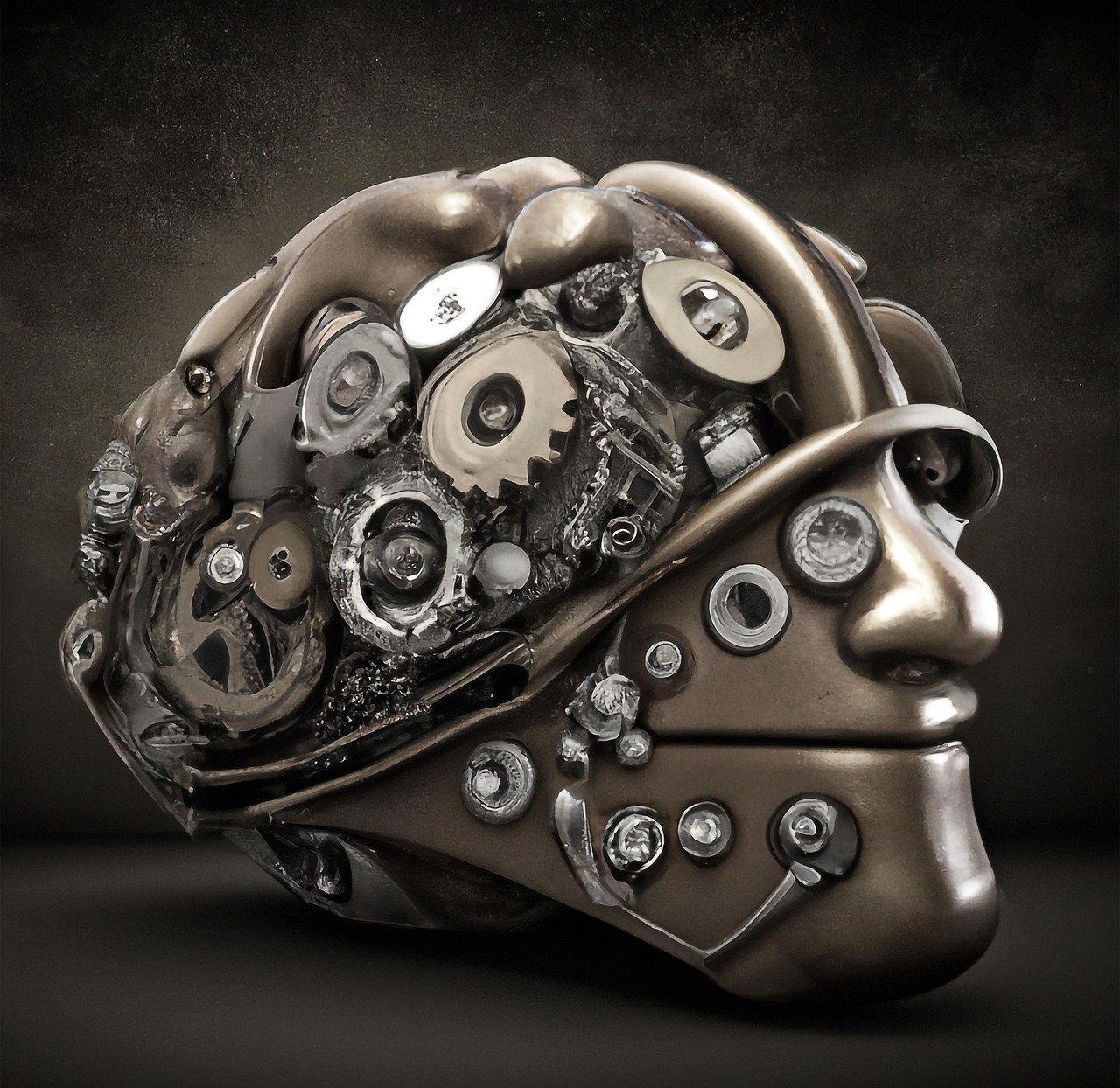
Neuroscientific Approaches
Neuroscience has dramatically reshaped our understanding of consciousness by employing a variety of innovative methods to probe the depths of the human mind. These approaches not only illuminate the intricate workings of the brain but also challenge our traditional notions of what it means to be conscious. Imagine trying to solve a complex puzzle; each piece represents a different aspect of our mental processes, and neuroscience provides the tools to fit them together. By utilizing techniques such as neuroimaging and electrophysiology, scientists are able to map brain activity and correlate it with conscious experience, revealing the dynamic interplay between our thoughts, emotions, and perceptions.
One of the most exciting tools in this field is neuroimaging, which includes methods like functional magnetic resonance imaging (fMRI) and positron emission tomography (PET). These techniques allow researchers to visualize areas of the brain that are active during specific tasks or experiences. For instance, when individuals engage in problem-solving, certain regions light up, indicating heightened activity. This not only helps us understand how different parts of the brain contribute to consciousness but also how they interact with one another. Here's a brief overview of these neuroimaging techniques:
| Technique | Description | Applications |
|---|---|---|
| fMRI | Measures brain activity by detecting changes in blood flow | Understanding cognitive processes, emotions, and consciousness |
| PET | Uses radioactive tracers to visualize brain activity | Studying metabolism, neurotransmitter activity, and brain disorders |
Another critical approach is electrophysiology, which records electrical activity in the brain through techniques such as electroencephalography (EEG). This method offers real-time data on brain function, allowing researchers to observe how consciousness shifts in response to various stimuli. Think of it as tuning into a radio station; EEG helps us listen to the brain's frequencies and understand how different thoughts and feelings manifest as electrical signals. The ability to capture these signals opens up new avenues for exploring the timing and dynamics of conscious experience.
In summary, the neuroscientific approaches to studying consciousness are akin to a multi-dimensional map of the mind. By employing advanced imaging techniques and electrical recordings, researchers are piecing together the puzzle of how our brains generate awareness. As we continue to explore these methods, we gain deeper insights into the nature of consciousness itself, paving the way for future discoveries that may redefine our understanding of what it means to be aware.
- What is the main goal of neuroscientific approaches to consciousness?
The primary goal is to understand how brain activity correlates with conscious experiences, revealing the mechanisms behind awareness. - How do neuroimaging techniques work?
Techniques like fMRI and PET visualize brain activity by measuring blood flow or using radioactive tracers, respectively. - What can electrophysiology tell us about consciousness?
Electrophysiology records electrical signals in the brain, providing insights into the timing and dynamics of conscious thought.
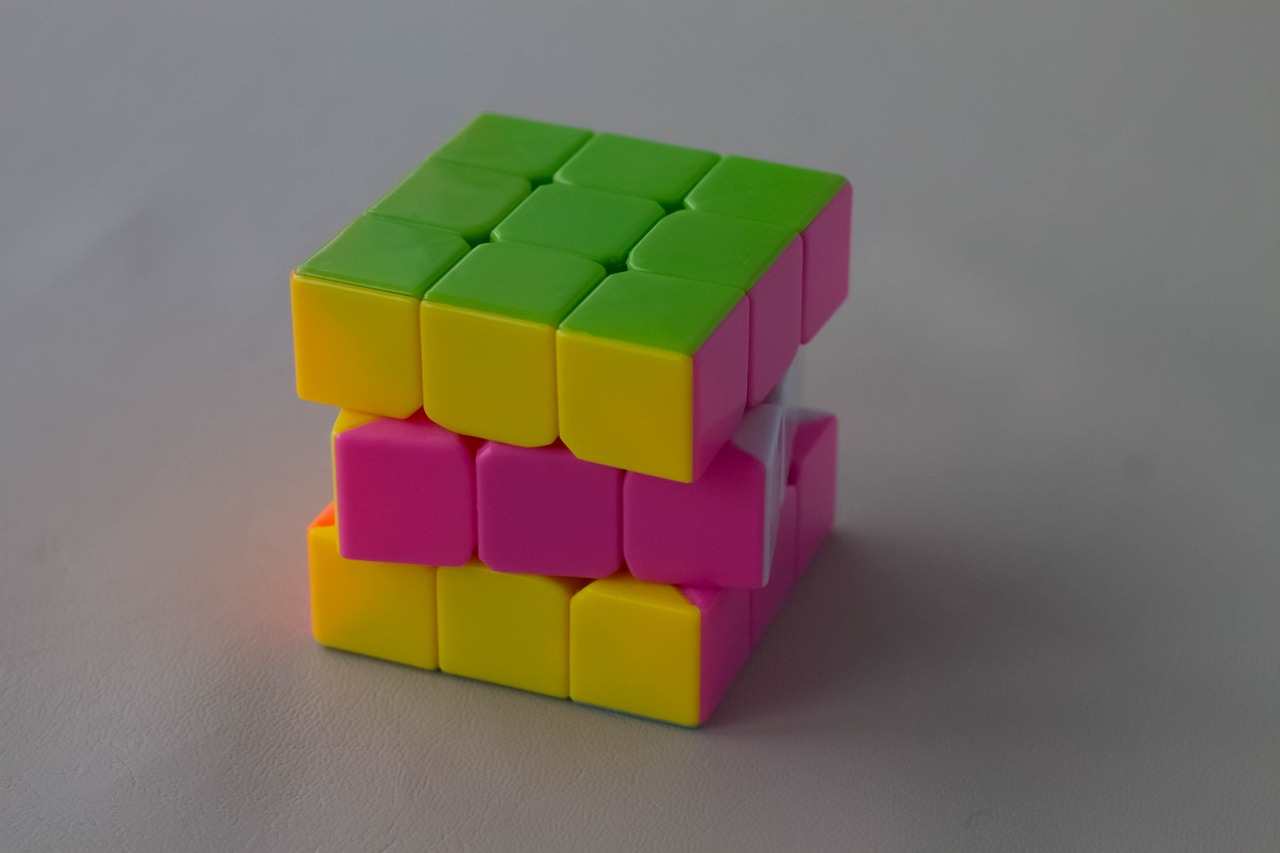
Key Brain Regions
When we dive into the fascinating world of consciousness, we quickly realize that certain areas of the brain play pivotal roles in shaping our awareness and experiences. The brain is a complex organ, and understanding its structure is akin to deciphering a sophisticated map where each region has its unique function and significance. Among these regions, the prefrontal cortex, parietal lobes, and temporal lobes stand out as key players in the theater of consciousness.
The prefrontal cortex is often hailed as the brain's command center. Located at the front of the brain, this area is crucial for higher-order functions such as decision-making, problem-solving, and self-awareness. Imagine it as the conductor of an orchestra, skillfully coordinating various sections to create a harmonious symphony of thoughts and actions. When we engage in complex reasoning or reflect on our own thoughts, it’s the prefrontal cortex that lights up, guiding us through the maze of our cognitive processes.
Next up are the parietal lobes, which reside just behind the frontal lobe. These regions are essential for integrating sensory information and spatial awareness. They help us understand where our body is in relation to the world around us. Think of the parietal lobes as the navigators of our consciousness, enabling us to perceive and interact with our environment effectively. When we touch something hot or see a beautiful landscape, these lobes are actively processing that information, allowing us to respond appropriately.
Then we have the temporal lobes, located on the sides of the brain, which are integral to our auditory processing and memory formation. They play a significant role in how we experience emotions and interpret social cues. The temporal lobes can be likened to a vast library, storing our memories and experiences, allowing us to draw upon them as needed. When we hear music or recall a cherished moment, it's the temporal lobes that bring those experiences to life, enriching our conscious experience.
To summarize the key regions of the brain associated with consciousness, let’s take a look at the table below:
| Brain Region | Function |
|---|---|
| Prefrontal Cortex | Decision-making, self-awareness, problem-solving |
| Parietal Lobes | Sensory integration, spatial awareness |
| Temporal Lobes | Auditory processing, memory formation, emotional response |
In addition to these regions, other areas such as the thalamus and hippocampus also contribute to our conscious experience. The thalamus acts as a relay station for sensory information, filtering what reaches our conscious awareness. Meanwhile, the hippocampus is crucial for forming new memories, which in turn shapes our understanding of the present and future.
Understanding these key brain regions is essential for unraveling the complexities of consciousness. Each area works in concert with the others, creating a rich tapestry of experiences that define who we are. As research continues to uncover the intricate connections between these regions, we move closer to comprehending the profound question: how does the mind reflect consciousness?
- What is the primary function of the prefrontal cortex? The prefrontal cortex is responsible for higher-order cognitive functions such as decision-making, problem-solving, and self-awareness.
- How do the parietal lobes contribute to our consciousness? The parietal lobes integrate sensory information and help us maintain spatial awareness, allowing us to navigate our environment effectively.
- What role do the temporal lobes play in our experiences? The temporal lobes are crucial for auditory processing, memory formation, and emotional responses, enriching our conscious experience.

Neurotransmitters and Consciousness
Neurotransmitters are the brain's chemical messengers, playing a pivotal role in shaping our conscious experience. These tiny molecules are responsible for transmitting signals between neurons, influencing everything from our mood to our perception of reality. Imagine neurotransmitters as the orchestra conductors of our brain, ensuring that each section plays in harmony to create the symphony of consciousness.
Among the myriad of neurotransmitters, a few stand out for their profound impact on consciousness:
- Dopamine: Often dubbed the "feel-good" neurotransmitter, dopamine is crucial for motivation, reward, and pleasure. Its release can enhance feelings of joy and satisfaction, making it a key player in our conscious experience.
- Serotonin: This neurotransmitter is associated with mood regulation and emotional well-being. Low levels of serotonin are linked to conditions like depression, demonstrating its significant role in shaping our conscious state.
- Norepinephrine: Involved in the body's fight-or-flight response, norepinephrine influences attention and response actions. It heightens alertness and prepares us for immediate action, affecting our conscious awareness of the environment.
These neurotransmitters do not operate in isolation; rather, they interact in complex networks that influence our thoughts, feelings, and perceptions. For instance, a surge of dopamine can lead to heightened focus and energy, while a dip in serotonin might cloud our mood and distort our perception of reality. This intricate dance of chemicals is what allows us to experience consciousness in its many forms.
Moreover, the balance of neurotransmitters is crucial. Too much or too little of these chemicals can lead to altered states of consciousness. For example, an excess of dopamine might result in heightened states of euphoria, while imbalances in serotonin can lead to depressive states. Understanding these dynamics is essential for grasping how our conscious experience is shaped and altered.
In conclusion, neurotransmitters are not just simple chemicals; they are fundamental to the very fabric of consciousness. They influence how we perceive the world, how we feel about ourselves, and ultimately, how we experience reality. As we continue to explore the depths of consciousness, the role of these tiny yet powerful molecules will undoubtedly remain a focal point of research and discovery.
- What are neurotransmitters? Neurotransmitters are chemicals in the brain that transmit signals between neurons, influencing various aspects of our mental state and consciousness.
- How do neurotransmitters affect consciousness? They play a crucial role in regulating mood, perception, and cognitive functions, thereby shaping our conscious experience.
- Can imbalances in neurotransmitters alter consciousness? Yes, imbalances can lead to various mental health issues and altered states of consciousness, affecting how we perceive reality.
- What are some common neurotransmitters and their functions? Common neurotransmitters include dopamine (associated with reward and pleasure), serotonin (linked to mood regulation), and norepinephrine (involved in attention and response).

Philosophical Perspectives
The exploration of consciousness is as much a philosophical endeavor as it is a scientific one. Philosophers have long grappled with the question of what consciousness truly is and how it relates to the physical world. To understand these profound inquiries, we need to dive into some of the major philosophical perspectives that have shaped our understanding of consciousness.
One of the most prominent theories is dualism, famously proposed by René Descartes. Dualism posits that the mind and body are fundamentally different substances; the mind being non-physical and the body being physical. This perspective raises intriguing questions: If the mind exists separately from the body, how do they interact? This leads to a myriad of debates about the nature of consciousness and whether it can exist independently of the physical brain.
In stark contrast, we have materialism, which argues that everything, including consciousness, can be explained in terms of physical processes. According to this view, consciousness arises from complex interactions of neurons in the brain. Materialists often emphasize the importance of neuroscience in understanding mental states, suggesting that as we learn more about the brain, we'll uncover the mysteries of consciousness. This approach invites a different set of questions: If consciousness is merely a byproduct of brain activity, what does that mean for our sense of self and personal identity?
Another fascinating perspective is panpsychism, which posits that consciousness is a fundamental aspect of the universe, present in all things, not just humans. This view suggests that even simple particles possess some form of consciousness, albeit in a very primitive sense. Imagine a vast ocean of consciousness where every wave and ripple represents different degrees of awareness. This perspective challenges our traditional notions and invites us to reconsider the nature of reality itself.
To further illustrate these philosophical positions, consider the following table that summarizes their core tenets:
| Philosophical Perspective | Description |
|---|---|
| Dualism | Mind and body are separate entities; the mind is non-physical. |
| Materialism | Consciousness arises from physical processes in the brain. |
| Panpsychism | Consciousness is a fundamental aspect of all matter. |
These philosophical perspectives not only enrich our understanding of consciousness but also provoke deeper questions about existence and identity. Are we merely biological machines, or is there something more profound at play? The dialogue between these differing views continues to fuel debates in both philosophy and science, allowing us to explore the essence of what it means to be conscious.
As we ponder these theories, we must also consider the implications they carry for our self-understanding. If consciousness is indeed a fundamental aspect of the universe, how does that change our relationship with the world around us? This interplay between philosophy and consciousness invites us to reflect on our existence and the nature of reality itself.
- What is consciousness? Consciousness refers to the state of being aware of and able to think about one's own existence, thoughts, and surroundings.
- Why is consciousness a philosophical issue? Consciousness raises fundamental questions about the nature of reality, existence, and the relationship between mind and body, making it a central topic in philosophy.
- Can consciousness exist without the brain? This is a debated topic; dualists argue that consciousness can exist independently of the brain, while materialists believe it is entirely dependent on brain activity.
- What is panpsychism? Panpsychism is the view that consciousness is a fundamental feature of all matter, suggesting that everything in the universe possesses some form of consciousness.

Altered States of Consciousness
Altered states of consciousness are fascinating phenomena that challenge our conventional understanding of awareness and reality. These states can be induced by various factors, including sleep, meditation, sensory deprivation, and the use of psychoactive substances. Imagine consciousness as a vast ocean, where most of us navigate the surface, while altered states allow us to dive deep into its hidden depths. In these moments, our perceptions can shift dramatically, revealing insights that often remain obscured in our everyday waking life.
One of the most intriguing aspects of altered states is their ability to provide unique perspectives on the self and the universe. For instance, during dreams, we can encounter scenarios that feel incredibly real, yet they are entirely constructed by our minds. Similarly, meditation can lead to states of heightened awareness, where the boundaries between self and other begin to dissolve. This experience can be likened to peeling back layers of an onion, revealing the core of our being that often remains hidden in our busy, distracted lives.
Moreover, altered states can serve as a bridge to understanding the complexities of consciousness. They invite us to ask profound questions: What is reality? How do we define our existence? Are our perceptions truly our own? These states can provoke a sense of wonder and curiosity, pushing the boundaries of our understanding and inviting us to explore the unknown.
To illustrate the diversity of altered states, consider the following categories:
- Dreaming: A natural state where the mind engages in vivid experiences during sleep.
- Meditation: A practice that can alter brain activity and enhance self-awareness.
- Psychedelic Experiences: Induced by substances that can profoundly change perception and cognition.
- Hypnosis: A state of focused attention that can unlock hidden memories and alter perception.
Each of these states offers a unique lens through which we can examine consciousness. For example, research has shown that during meditation, brain activity shifts in ways that promote relaxation and mindfulness. This can lead to a greater sense of peace and clarity, as if the mind has been decluttered, allowing for a more profound connection to the present moment.
Psychedelics, on the other hand, can induce experiences that challenge our conventional understanding of reality. Users often report feelings of interconnectedness and unity with the universe, a sensation that can be both awe-inspiring and transformative. It's as if the barriers separating the self from the rest of existence begin to dissolve, revealing a tapestry of interconnectedness that is both humbling and enlightening.
As we explore these altered states of consciousness, it becomes clear that they hold the potential to expand our understanding of the mind. They invite us to question the very nature of our existence and the frameworks through which we perceive reality. In a world that often feels fragmented and chaotic, these experiences can provide a sense of clarity and purpose, reminding us of the beauty and mystery that lies beyond our everyday experiences.
- What are altered states of consciousness? Altered states of consciousness refer to mental states that differ significantly from the normal waking state, including experiences induced by sleep, meditation, and psychoactive substances.
- How can meditation affect consciousness? Meditation can lead to altered states by promoting relaxation and heightened awareness, allowing individuals to experience a deeper connection to themselves and their surroundings.
- Are altered states of consciousness beneficial? Many people find that altered states can lead to personal insights, emotional healing, and a greater understanding of their place in the universe.
- What role do psychedelics play in understanding consciousness? Psychedelics can induce profound shifts in perception, often leading to experiences that challenge traditional views of reality and provide insights into the nature of consciousness.

Impact of Meditation
Meditation is not just a trend; it's a profound practice that has been around for centuries, and its impact on consciousness is nothing short of remarkable. When we think about meditation, many of us picture a serene individual sitting cross-legged, eyes closed, in a tranquil environment. But what really happens when we meditate? How does this simple act alter our perception of self and reality?
At its core, meditation is a way to train the mind, akin to how physical exercise strengthens the body. Research has shown that regular meditation can lead to significant changes in brain structure and function. For instance, studies utilizing neuroimaging techniques have revealed that meditation can increase the density of gray matter in areas of the brain associated with emotional regulation, self-referential processing, and perspective-taking. This means that through meditation, we can literally reshape our brains to enhance our conscious experience.
Moreover, meditation can improve our emotional well-being. By fostering a state of mindfulness, individuals can develop a greater awareness of their thoughts and feelings without judgment. This heightened state of awareness allows practitioners to respond to stressors more effectively, reducing anxiety and promoting a sense of calm. It's like having a mental toolkit that equips you to navigate the ups and downs of life with grace.
One of the most fascinating aspects of meditation is its ability to alter our perception of time and space. During deep meditative states, many individuals report a feeling of timelessness or a sense of being connected to something greater than themselves. This experience can lead to profound insights and a shift in how one views reality. It's as if meditation offers a window into a different dimension of consciousness, one that transcends the ordinary and invites us to explore the depths of our minds.
Additionally, the impact of meditation extends beyond individual experience. Research has shown that collective meditation practices can foster a sense of community and interconnectedness among participants. This communal aspect can amplify the benefits of meditation, creating a ripple effect that enhances the overall consciousness of a group. Imagine the power of a group of individuals, all meditating together, cultivating peace and mindfulness that resonates far beyond the confines of the meditation space.
In summary, the impact of meditation on consciousness is multi-faceted and profound. From reshaping brain structure to altering emotional responses and perceptions of reality, meditation offers a unique pathway to enhanced awareness. As we continue to explore the depths of our consciousness through this practice, we not only enrich our own lives but also contribute to a collective shift towards greater mindfulness and understanding in our communities.
- What is meditation? Meditation is a practice that involves focusing the mind to achieve a mentally clear and emotionally calm state.
- How does meditation affect the brain? Meditation can increase gray matter density in areas related to emotional regulation and self-awareness.
- Can meditation help with stress? Yes, studies suggest that meditation can significantly reduce stress and anxiety levels.
- Do I need to meditate for a long time to see benefits? Even short, regular sessions of meditation can yield positive effects on mental health and consciousness.

Psychedelic Experiences
Psychedelic experiences are a fascinating frontier in the exploration of consciousness, often described as profound, mind-altering journeys that can reshape our understanding of reality. Substances like psilocybin, LSD, and ayahuasca have been used for centuries, not just for recreational purposes but also for spiritual and therapeutic reasons. These experiences can lead to a heightened sense of awareness, allowing individuals to perceive the world in ways they never thought possible. Think of it as opening a door to a hidden room in your mind, where the walls are painted with colors you’ve never seen and the air is thick with new ideas.
During a psychedelic experience, users often report a sense of interconnectedness with the universe, a feeling that transcends the boundaries of the self. This can manifest as visual and auditory hallucinations, where the lines between reality and imagination blur. For many, it's like stepping into a painting where the rules of physics no longer apply—time stretches, emotions intensify, and thoughts flow freely like a river. But what’s happening in the brain during these experiences? Neuroscience has begun to unravel some of the mysteries, showing that psychedelics can significantly alter brain connectivity and activity.
Research indicates that psychedelics may reduce activity in the default mode network (DMN), a brain network associated with self-referential thoughts and the ego. When this network quiets down, users often report a dissolution of the ego, leading to experiences that feel deeply spiritual or enlightening. It’s as if the usual filters that shape our perception of reality are lifted, allowing for a direct experience of consciousness itself. This phenomenon raises intriguing questions: Are we tapping into a deeper level of consciousness? Or are we merely experiencing a temporary alteration of our brain's chemistry?
Moreover, the therapeutic potential of psychedelics is gaining recognition in the medical community. Studies have shown promising results in treating conditions like depression, anxiety, and PTSD. The insights gained during these psychedelic experiences can lead to significant breakthroughs in understanding personal issues, helping individuals to confront their fears and traumas. Imagine using a psychedelic experience as a tool for self-discovery, where each trip can be a step toward healing and personal growth.
As we delve deeper into the science of psychedelics, it’s essential to approach these substances with caution and respect. While they offer incredible potential for expanding our understanding of consciousness, they also come with risks, especially when used irresponsibly. Setting, intention, and mental health status play critical roles in shaping the experience. Therefore, it’s crucial for individuals to educate themselves and consider seeking guidance from professionals in the field.
In conclusion, psychedelic experiences provide a unique window into the complexities of consciousness. They challenge our conventional understanding of reality and open up new avenues for exploration, both scientifically and spiritually. As research continues to evolve, we may find ourselves standing on the precipice of a new era in consciousness studies, where the mysteries of the mind are unraveled, one psychedelic journey at a time.
- What are psychedelics? Psychedelics are substances that alter perception, mood, and various cognitive processes. Common examples include LSD, psilocybin mushrooms, and DMT.
- Are psychedelic experiences safe? While many people have positive experiences, psychedelics can also lead to challenging experiences, especially in individuals with a history of mental health issues. It’s important to approach them with caution.
- Can psychedelics be used therapeutically? Yes, recent studies suggest that psychedelics may have therapeutic benefits for conditions like depression, anxiety, and PTSD, although more research is needed.
- What should I consider before trying psychedelics? Consider your mental health, the setting in which you will use them, and your intentions. It’s advisable to seek guidance from professionals if you are new to these substances.

The Future of Consciousness Studies
The exploration of consciousness is not just a fascinating endeavor; it is a journey that continuously evolves as our understanding of the mind deepens. As we look to the future, several emerging trends and technologies are set to revolutionize the study of consciousness. Imagine a world where we can map thoughts in real-time or understand the intricacies of human experience through advanced neuroimaging techniques. This is not just science fiction; it’s rapidly becoming a reality!
One of the most exciting developments in consciousness studies is the integration of artificial intelligence (AI) and machine learning. These technologies are being harnessed to analyze vast amounts of neurological data, providing insights that were previously unimaginable. For instance, researchers are using AI algorithms to identify patterns in brain activity associated with different states of consciousness. This could lead to breakthroughs in understanding how various mental states correlate with specific neural processes.
Furthermore, the advent of neurotechnology—devices that interact directly with the brain—holds promise for future studies of consciousness. Innovations like brain-computer interfaces (BCIs) are enabling researchers to communicate with the brain in ways that were once deemed impossible. Imagine a scenario where individuals with locked-in syndrome could express their thoughts through a computer interface, offering a profound glimpse into their conscious experience. Such advancements not only enhance our understanding of consciousness but also open up new avenues for therapeutic interventions.
In addition to technological advancements, interdisciplinary collaboration is becoming increasingly vital. The fusion of neuroscience, psychology, philosophy, and even quantum physics is leading to a more holistic understanding of consciousness. Researchers are beginning to question long-held beliefs about the mind-body relationship and are exploring concepts such as integrated information theory, which posits that consciousness arises from the integration of information within a system. This theory could pave the way for new methodologies in consciousness research.
As we delve deeper into the complexities of consciousness, ethical considerations will also play a significant role in shaping future studies. With the power to manipulate and understand consciousness comes the responsibility to address the moral implications of such advancements. For example, as we learn more about altering states of consciousness through technology or substances, we must also consider the ethical boundaries of such practices. Questions arise: Should we enhance consciousness artificially? What are the implications for personal identity and autonomy?
Moreover, the exploration of altered states of consciousness, such as those induced by meditation or psychedelics, is gaining traction in scientific circles. Researchers are beginning to systematically study these phenomena to understand their effects on mental health and overall well-being. This could lead to the development of new therapeutic approaches that leverage altered states to treat conditions like depression, anxiety, and PTSD.
In summary, the future of consciousness studies is bright and filled with potential. With the combination of cutting-edge technology, interdisciplinary approaches, and ethical considerations, we are on the brink of a new era in understanding the mind. As we continue to unravel the mysteries of consciousness, we may find answers to some of the most profound questions about the nature of human experience and our place in the universe.
- What is consciousness? Consciousness refers to the state of being aware of and able to think about one's own existence, thoughts, and surroundings.
- How do scientists study consciousness? Scientists employ various methods, including neuroimaging techniques like fMRI and EEG, to observe brain activity associated with different conscious states.
- What role do altered states of consciousness play in research? Altered states, such as those induced by meditation or psychedelics, provide insights into the nature of consciousness and can inform therapeutic practices.
- What ethical considerations are there in consciousness studies? Researchers must consider the implications of manipulating consciousness, including issues of personal identity, autonomy, and the potential for misuse of technology.
Frequently Asked Questions
- What is consciousness?
Consciousness is often described as the state of being aware of and able to think about one's own existence, thoughts, and surroundings. It's like the spotlight of your mind, shining on what you experience and perceive in the moment.
- How does the brain contribute to consciousness?
The brain serves as the physical foundation for consciousness. Different areas of the brain are responsible for various aspects of conscious experience, such as self-awareness and decision-making. Think of the brain as a complex orchestra, with each section playing a vital role in creating the symphony of your thoughts and perceptions.
- What are altered states of consciousness?
Altered states of consciousness refer to experiences that differ from the normal waking state. These can include dreams, meditation, and psychedelic experiences. They challenge our understanding of reality and can provide insights into the nature of consciousness itself.
- How does meditation affect consciousness?
Meditation can significantly alter perceptions of self and reality. By practicing mindfulness, individuals often report enhanced awareness and improved emotional regulation, making it a powerful tool for exploring the depths of consciousness.
- What role do neurotransmitters play in consciousness?
Neurotransmitters like dopamine and serotonin are crucial in modulating consciousness. They influence mood, perception, and overall conscious experience, acting like chemical messengers that help shape how we interpret the world around us.
- What philosophical perspectives exist on consciousness?
Philosophical debates about consciousness include theories such as dualism, which posits a separation between mind and body, and materialism, which views consciousness as a product of physical processes. These perspectives offer diverse insights into the nature of awareness and existence.
- How do psychedelics influence consciousness?
Psychedelics can induce altered states that provide unique insights into consciousness. Users often report experiences of expanded awareness and new perspectives on reality, suggesting that these substances may offer valuable tools for understanding the mind.
- What are the future trends in consciousness studies?
The study of consciousness is evolving rapidly, with advancements in technology and research methods. Emerging trends may lead to new discoveries about the mind and its relationship to consciousness, potentially reshaping our understanding of what it means to be aware.







